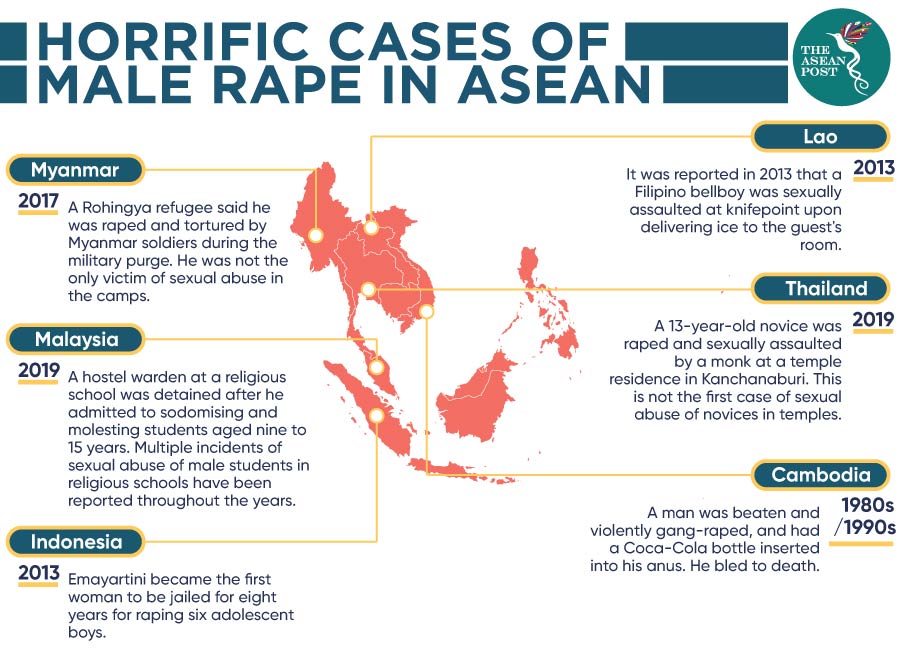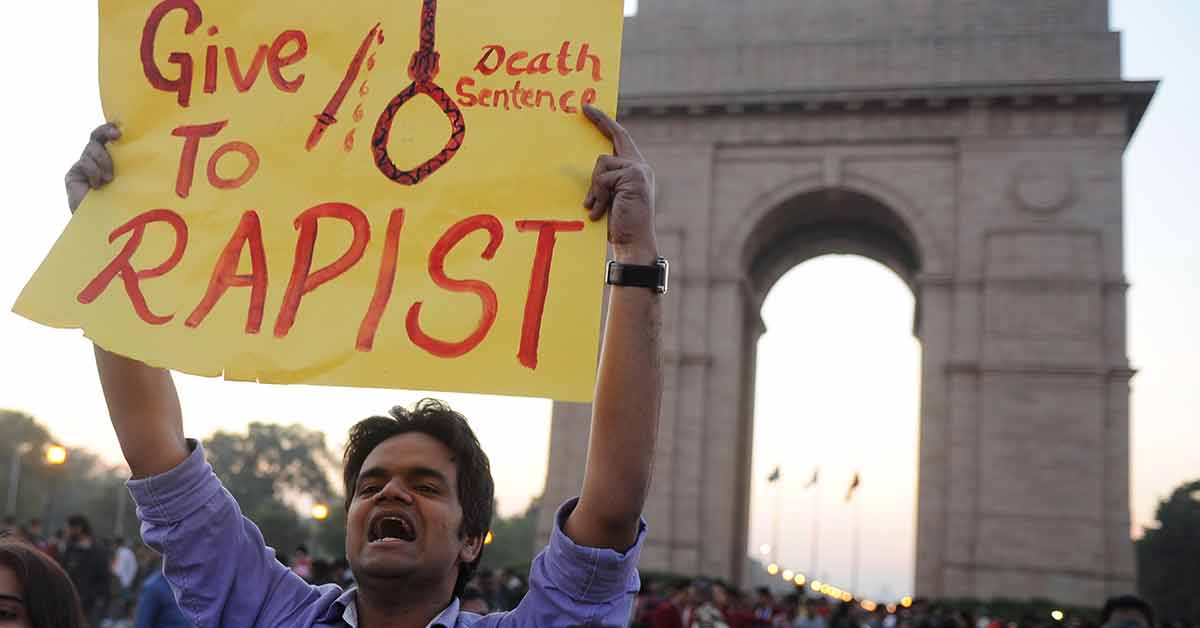Just a few months ago, the world was horrified from the news of Reynhard Sinaga – said to be the most prolific rapist in British history, with 159 counts of sexual offences against 48 men and an estimated 70 victims who have yet to be identified. Reports said that the Indonesian student who lived in Manchester, United Kingdom would wait for intoxicated men outside nightclubs and bars, lure victims into his apartment, then drug them until they passed out before raping them. He was caught when one of his victims regained consciousness while he was being violated. Sinaga was sentenced to life imprisonment for his heinous crimes.
Rape is typically seen as a crime committed solely against women. However, in recent years, although rare – some brave men and boys have come forward to admit that they have been victims of rape and sexual abuse. Despite this, many cases of male rape go unreported because of the social stigma attached to it. The Centers for Disease Control and Prevention (CDC) in the United States (US) conducted a study in 2010-2012 and found that one in 17 men reported being forced to penetrate at some point in their lives. Among male victims who were raped by being penetrated, 86.5 percent reported that the perpetrators were male.
In some societies, it is considered unmanly for a man to cry, because the male stereotype depicts men as being able to protect themselves. This toxic masculinity only makes it worse for men who have been raped. Men are generally afraid to come forward as rape victims for fear of being perceived as being weak or gay.
"The main reason that fewer men come forward is that people assume they should be invulnerable, they should fight back. They have allowed it – so they must be homosexual”, explained Dr Chris Dolan, director of The Refugee Law Project, an organisation that provides legal aid to asylum seekers and refugees in Uganda.
When women are assaulted, they are frequently asked about their attire and whether it was “inviting”, while male victims would be questioned about their sexual orientation and masculinity.
Criminalising male rape in ASEAN
Like everywhere else around the world, male rape is a taboo in Southeast Asia. It is especially stigmatised in conservative nations as homosexuality and male-on-male penetration is frowned upon and illegal in countries like Brunei, Indonesia and Malaysia. In fact, Brunei has even implemented capital punishment including “death by stoning” for those caught in homosexual acts. In Aceh, a semi-autonomous province in Indonesia, public flogging is also carried out as a form of punishment for homosexuals.
Male rape in Southeast Asia has always been around with victims more often than not having to suffer in silence. A survey carried out by United Nations Children's Fund (UNICEF) and the Cambodian government found that 5.6 percent of males aged between 18 and 24 had experienced sexual abuse prior to reaching the age of 18. According to The New Humanitarian, in a focus group discussion with 89 Rohingya men and boys, a third of them personally knew a Rohingya man or boy who had experienced conflict-related sexual assault in Myanmar. Although no complete or updated data is available on male rape in Southeast Asia, there have been several infamous cases of male sexual abuse reported in the region.

Malaysia’s Penal Code defines rape as sexual intercourse with a woman against her will or without her consent. It could also be classified as rape when her consent is obtained by placing her in fear of death or hurt; when she is unable to understand the nature and consequences of what she is consenting to; when her consent is obtained by using a position of authority, and when sexual intercourse is carried out with a girl under the age of 16.
This means that if a man comes forward, he would be told that what happened to him wasn't rape, but sexual assault, which carries a lesser penalty.
According to Malaysian Medical Association (MMA) president, Dr N.K.S. Tharmaseelan, male victims are often left to suffer alone. He added that “males can be more damaged by society's refusal or reluctance to accept their victimisation and that they must tough it out in silence.”
Despite the progress made in many countries by educating the public on consent and sexual assault, male rape is still not widely discussed or legally recognised. This makes it difficult for victims to talk about their traumatising experiences and to seek help.
However, light was shed on the issue when Singapore proposed a bill in 2019 to expand the definition of rape so that men could also be considered as victims of rape and voyeurism. Male rape is also recognised as rape by sexual assault in the Philippines, which is penalised by imprisonment of between six to 12 years.
The conversation surrounding male rape needs to be amplified in Southeast Asia, so that victims can receive full support and aid without feeling shame or guilt. While girls are often advised to be careful of potential predators and rapists, boys are rarely given any advice or warning about the many “Sinagas” out there waiting to prey on them.
Related articles:
